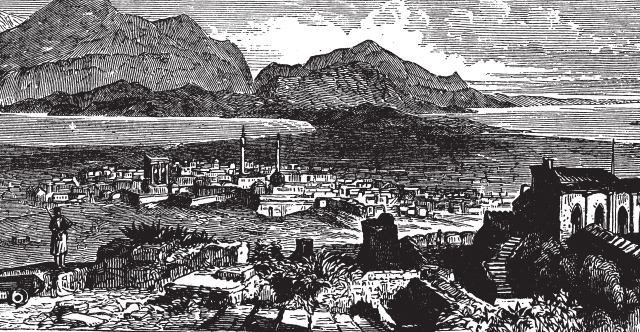
1
N
ow about food offered to idols: of course we know that all of us possess knowledge knowledge causes people to be puffed up (to bear themselves loftily and be proud), but love (affection and goodwill and benevolence) edifies and builds up and encourages one to grow.
А щодо ідольських жертов, то ми знаємо, що всі маємо знання. Знання ж надимає, любов же будує!
2
I
f anyone imagines that he has come to know and understand much, he does not yet perceive and recognize and understand as strongly and clearly, nor has he become as intimately acquainted with anything as he ought or as is necessary.
Коли хто думає, ніби щось знає, той нічого не знає ще так, як знати повинно.
3
B
ut if one loves God truly '> with affectionate reverence, prompt obedience, and grateful recognition of His blessing], he is known by God '> recognized as worthy of His intimacy and love, and he is owned by Him].
Коли ж любить хто Бога, той пізнаний Ним.
4
I
n this matter, then, of eating food offered to idols, we know that an idol is nothing (has no real existence) and that there is no God but one.
Тож про споживання ідольських жертов ми знаємо, що ідол у світі ніщо, і що іншого Бога нема, окрім Бога Одного.
5
F
or although there may be so-called gods, whether in heaven or on earth, as indeed there are many of them, both of gods and of lords and masters,
Бо хоч і існують так звані боги чи на небі, чи то на землі, як існує багато богів і багато панів,
6
Y
et for us there is one God, the Father, Who is the Source of all things and for Whom we, and one Lord, Jesus Christ, through and by Whom are all things and through and by Whom we.
та для нас один Бог Отець, що з Нього походить усе, ми ж для Нього, і один Господь Ісус Христос, що все сталося Ним, і ми Ним.
7
N
evertheless, not all possess this knowledge. But some, through being all their lives until now accustomed to idols, still consider the food as that sacrificed to an god; and their weak consciences become defiled and injured if they eat.
Та не всі таке мають знання, бо деякі мають призвичаєння до ідола й досі, і їдять, як ідольську жертву, і їхнє сумління, бувши недуже, споганюється.
8
N
ow food will not cause our acceptance by God nor commend us to Him. Eating gives us no advantage; neither do we come short or become any worse if we do not eat.
Їжа ж нас до Бога не зближує: бо коли не їмо, то нічого не тратимо, а коли ми їмо, то не набуваєм нічого.
9
O
nly be careful that this power of choice (this permission and liberty to do as you please) which is yours, does not become a hindrance (cause of stumbling) to the weak or overscrupulous.
Але стережіться, щоб ця ваша воля не стала якось за спотикання слабим!
10
F
or suppose someone sees you, a man having knowledge reclining at table in an idol’s temple, might he not be encouraged and emboldened if he is weak and uncertain, and eat what is for the purpose of idol worship?
Коли бо хто бачить тебе, маючого знання, як ти в ідольській божниці сидиш за столом, чи ж сумління його, бувши слабе, не буде спонукане їсти ідольські жертви?
11
A
nd so by your enlightenment (your knowledge of spiritual things), this weak man is ruined (is lost and perishes)—the brother for whom Christ (the Messiah) died!
І через знання твоє згине недужий твій брат, що за нього Христос був умер!
12
A
nd when you sin against your brethren in this way, wounding and damaging their weak conscience, you sin against Christ.
Грішачи так проти братів та вражаючи їхнє слабе сумління, ви проти Христа грішите.
13
T
herefore, if food is a cause of my brother’s falling or of hindering, I will not eat flesh forever, lest I cause my brother to be tripped up and fall and to be offended.
Ось тому, коли їжа спокушує брата мого, то повік я не їстиму м'яса, щоб не спокусити брата свого!
 English
English
 Albanian - Shqip
Albanian - Shqip
 Arabic - العربية
Arabic - العربية
 Bulgarian - Български
Bulgarian - Български
 Chinese - 汉语
Chinese - 汉语
 English - English
English - English
 French - Français
French - Français
 German - Deutsch
German - Deutsch
 Italian - Italiano
Italian - Italiano
 Māori - Te Reo Māori
Māori - Te Reo Māori
 Portuguese - Português
Portuguese - Português
 Romanian - Română
Romanian - Română
 Russian - Русский
Russian - Русский
 Somali - Af Soomaali
Somali - Af Soomaali
 Spanish - Español
Spanish - Español
 Ukrainian - Українська
Ukrainian - Українська
 Vietnamese - Tiêng Viêt
Vietnamese - Tiêng Viêt
 Ukrainian
Ukrainian
 Albanian - Shqip
Albanian - Shqip
 Arabic - العربية
Arabic - العربية
 Bulgarian - Български
Bulgarian - Български
 Chinese - 汉语
Chinese - 汉语
 English - English
English - English
 French - Français
French - Français
 German - Deutsch
German - Deutsch
 Italian - Italiano
Italian - Italiano
 Māori - Te Reo Māori
Māori - Te Reo Māori
 Portuguese - Português
Portuguese - Português
 Romanian - Română
Romanian - Română
 Russian - Русский
Russian - Русский
 Somali - Af Soomaali
Somali - Af Soomaali
 Spanish - Español
Spanish - Español
 Ukrainian - Українська
Ukrainian - Українська
 Vietnamese - Tiêng Viêt
Vietnamese - Tiêng Viêt
